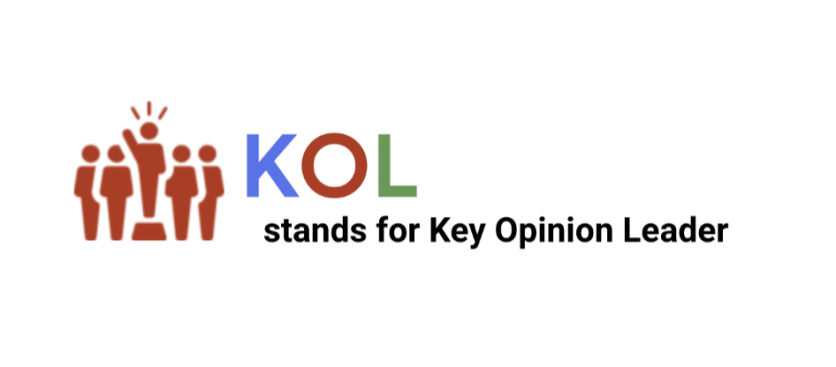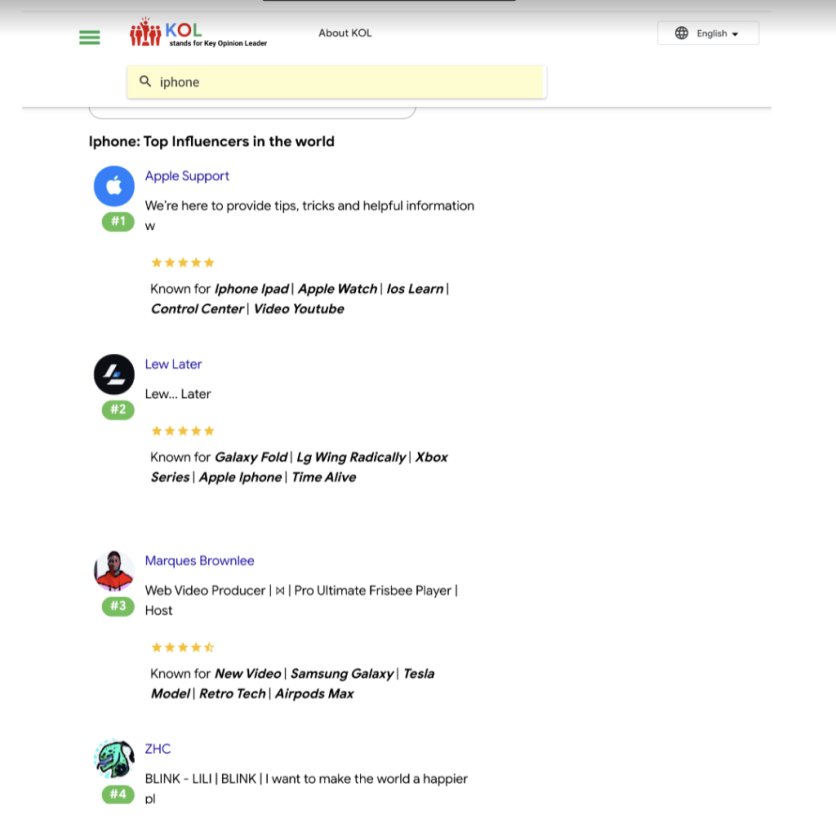
KOL means Key Opinion Leader, a person with influence in his/her domain.
KOL is also the name of a free search engine that categorizes and ranks KOLs according to the evidence of the agreement of other professionals in the same field.
How to Find the Top Doctors
Ranking doctors by the opinions of other doctors is a novel idea. Until now, you could only get a sense of the depth of knowledge of a doctor or medical professional by looking at the reviews of past patients. But there are a few shortcomings with this approach:
The thoughts are subjective and vary depending on the patient's experience (depending on their situation).
Coverage of reviews is scarce and varies depending on the type of condition: Have you ever seen a review online for a doctor specializing in STDs?
Humans curate patient reviews: Curation introduces bias.
KOL's approach is a bit different; instead of ranking doctors by patients' reviews, they rank doctors by other doctors' reviews by employing AI and sentiment analysis on publications made in medical journals.
We can see an advantage with this approach: Medical journals have a high degree of scrutiny before articles are published. They have to go through several rounds of peer reviews and discussion before the journal can move on to publication. This elevated scrutiny means the data is more likely to be accurate than a review written by a patient.
KOL Taxonomy
KOL recently launched a new feature called "KOL Taxonomy," categorizing doctors by the medical specialty and medical conditions they specialize in and subsequently ranking them from top to bottom based on evidence of agreement from other medical professionals.
The company published figures that give an idea of the data size analyzed to produce the taxonomy. For example, some therapeutic areas mention numbers ranging between 16 Trillion to 196 Trillion data points. It is unclear from the website what a data point is, but from the context we gather they refer to the evidence of support from other doctors.
The KOL Taxonomy covers a wide range of therapeutic areas, including:
Infectious Diseases
Neoplasms (Cancer)
Mental and behavioral disorders
Endocrine and metabolic diseases
Respiratory affections
Diseases of the eye
Dentistry
Dermatology
Digestive system diseases
Musculoskeletal
Conditions present during Pregnancy and childbirth
Congenital malformations
Rare diseases
Injury and poisoning
What Algorithm Does KOL Use to rank "Key Opinion Leaders"?
According to KOL's website, they use an algorithm called PersonRank (maybe a nudge to PageRank?). The description of PersonRank is vague, but their website assures there's "no human intervention (or bias) while computing PersonRank scores."
Who can benefit from this technology?
Patients wanting to identify local doctors whose opinions are trusted by other doctors (for a specific condition), this is: they are considered a key opinion leader.
Researchers looking to connect with the top KOLs in a specific area. Spoiler alert: they may not even speak the same language.
Universities or Research Institutions wanting to quantify the reach of their research teams in scientific circles.
Medical communications agencies
Clinical trials managers
Other uses of KOL (Iphone)
Out of curiosity, we wanted to try what other uses there could be for this kind of technology. Naturally we tried a query we are very familiar with: "iPhone". We were pleasantly surprised to see that we got "Apple Support", "Lew Later", "Marques Brownlee" and "ZHC" among the top 5 results. All are very influential social media accounts for the concept of "iphone" (please see screenshot below)

It sounds like this technology could be used beyond the medical field.
Cost
The website is publicly available and cost-free; we could test it by building a few custom lists without creating an account. The experience felt like using Google Search, but we were searching for medical experts instead of searching for websites. No advertisement was displayed to us while we were conducting our tests.
ⓒ 2025 TECHTIMES.com All rights reserved. Do not reproduce without permission.




